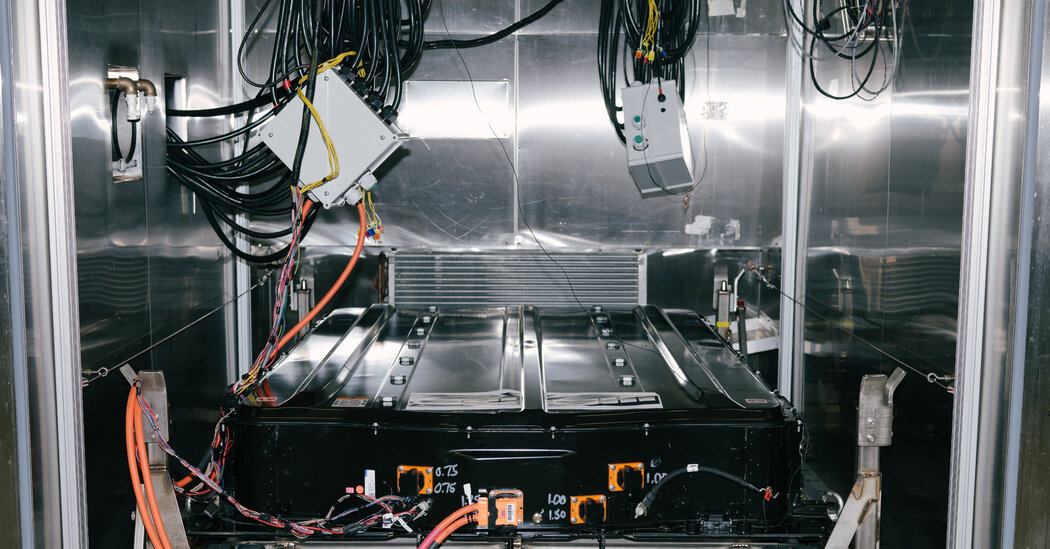

The U.S. Energy Department said Monday that it would lend $2.5 billion to a battery maker owned by General Motors and LG Energy Solution to build battery factories, advancing the Biden administration’s plan to promote electric vehicles and reduce dependence on China for critical components.
G.M. and LG Energy, a South Korean battery maker, are partners in Ultium, a joint venture that will use the money to manufacture batteries in Ohio, Tennessee and Michigan. The loan, which is conditional on the companies’ meeting certain requirements, is the first in more than a decade by a government program that provided $465 million to help Tesla produce its first sedan, the Model S.
The U.S. government has played a significant and often unsung role in promoting electric vehicle technology. Numerous universities and entrepreneurs have received money from the Energy Department’s Advanced Research Projects Agency to develop batteries that can be charged faster and contain more energy per pound than earlier versions. Some of these companies, such as Sila Nanotechnologies in Alameda, Calif., and Solid Power in Louisville, Colo., are moving closer to manufacturing advanced batteries for major carmakers.
The new Ultium factories are expected to provide more than 5,000 permanent jobs, the Department of Energy said. G.M. has said the Ohio factory, which is in Lordstown, will begin producing battery packs this year.
Domestic battery manufacturing could also help lower the cost of electric vehicles. Batteries are heavy, and building them close to car factories generally saves money.
The investments in Ohio and Michigan will help reassure labor leaders and state officials that they will not be left out of the electric vehicle boom. Much of the corporate investments in new electric car and battery factories is going to Southern states like Tennessee, Alabama and Georgia.
“We must seize the chance to make advanced batteries — the heart of this growing industry — right here at home,” Jennifer M. Granholm, the energy secretary and a former governor of Michigan, said in a statement.
Separately, in a rare display of bipartisanship, Congress last year passed an infrastructure law that the Biden administration hopes will lay the ground for millions of electric cars, and to establish a domestic supply chain for battery manufacturing.
The administration plans to spend $7.5 billion to build electric vehicle chargers along major highways, and more than $7 billion to establish supplies of lithium and other materials used to make batteries. China dominates lithium processing, and CATL, based in the city of Ningde, is the world’s largest battery maker.
24World Media does not take any responsibility of the information you see on this page. The content this page contains is from independent third-party content provider. If you have any concerns regarding the content, please free to write us here: contact@24worldmedia.com

Marnus Labuschagne Caught Off-Guard By ODI Captain Call After Steve Smith Snub

Everyone Is Looking Forward To It, The Standard Will Be Very High – Jacques Kallis On CSA’s SA20

Danushka Gunathilaka Granted Bail On Sexual Assault Charges

Ramiz Raja Sends Legal Notice To Kamran Akmal For Defamatory, False Claims Against The Board

Harbhajan Singh Reckons Mumbai Indians Should Release Kieron Pollard Ahead Of The IPL Auction 2023

Ian Bishop Praises Sam Curran For His Performances On Bouncy Australian Tracks

Why Choose A Career In Child Psychology?